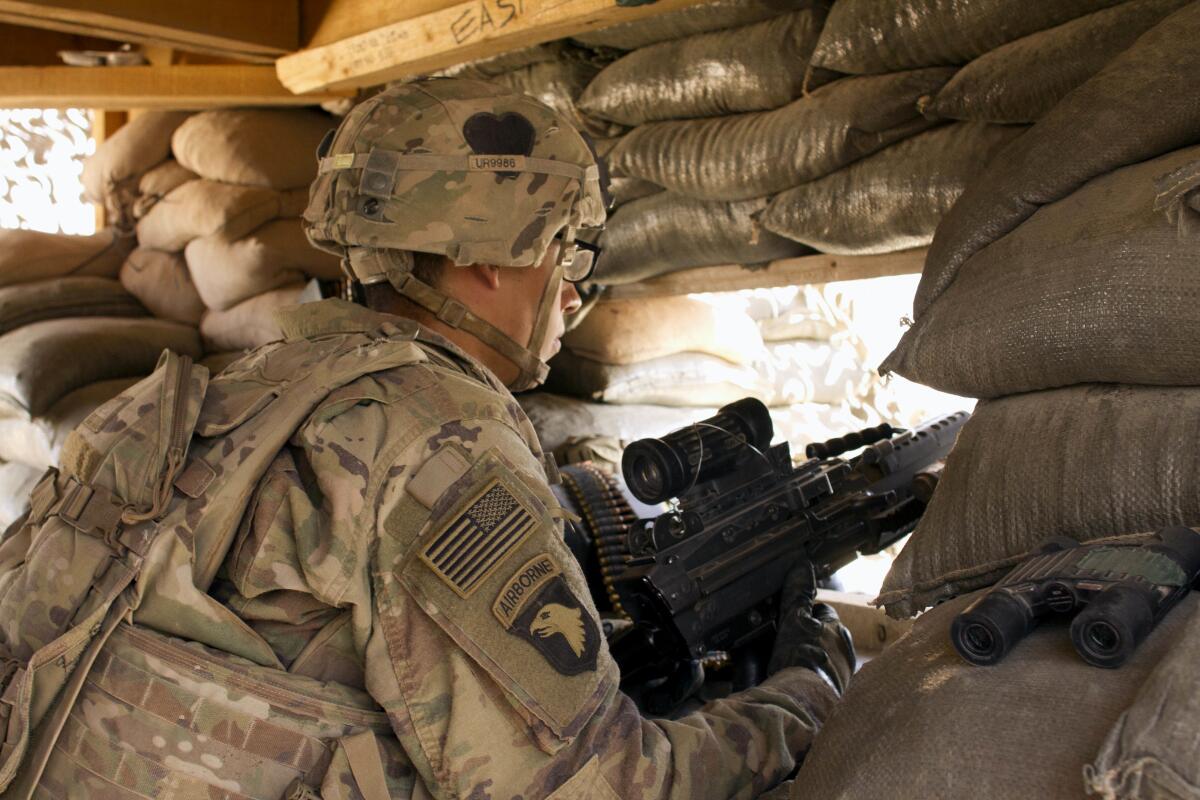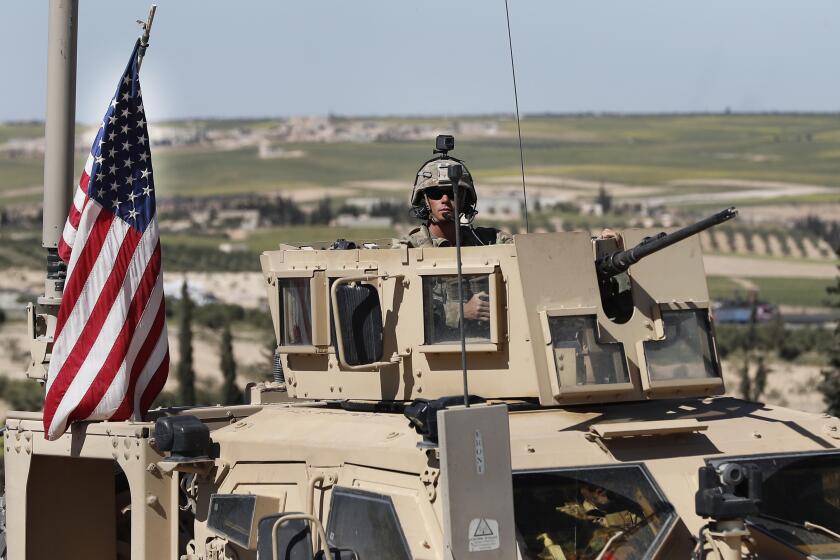No timetable for withdrawal of troops after U.S., Iraq talks

- Share via
BAGHDAD — The mission of U.S. forces in Iraq has shifted to training and advisory roles, allowing for a redeployment of combat forces remaining in the country, U.S. and Iraq delegates said this week after a third round of strategic talks.
Statements issued by both sides, however, said the timing of such a redeployment would be determined in coming technical talks, without specifying when they would take place. They also emphasized the need for continued security cooperation.
The talks — held virtually because of the pandemic — began in June under the Trump administration. Wednesday’s round, the first under President Biden, centered on an array of issues, including the presence of U.S. troops in Iraq.
Iraq had requested the latest round partly in response to pressure from Shiite political factions and militias loyal to Iran that have lobbied for the remaining U.S. troops to leave Iraq. Participants included U.S. Secretary of State Antony J. Blinken and Undersecretary of State for Political Affairs David Hale and Iraqi Foreign Minister Fuad Hussein.
A State Department statement following the talks said that with increasing capacity of Iraqi security forces, the mission of U.S. and coalition forces “has now transitioned to one focused on training and advisory tasks, thereby allowing for the redeployment of any remaining combat forces from Iraq.”
Pentagon Press Secretary John Kirby said Wednesday’s statement does not represent an agreement to begin a further withdrawal of U.S. forces.
Just 900 U.S. troops remain in Syria, working with allies in a nation torn by civil war. The Biden administration appears in no rush to leave, fearing an Islamic State resurgence.
Iraqi military spokesman Brig. Gen. Yahya Rasool said later that Prime Minister Mustafa Kadhimi has ordered the formation of a committee that would hold technical talks with the U.S. to approve “mechanisms and timings” related to a redeployment.
Kadhimi has walked a tightrope as he negotiates with the Americans while coming under growing pressure from local militias loyal to Tehran.
Last week, a convoy of heavily armed Shiite militiamen drove openly through Baghdad, denouncing the U.S. presence and threatening to cut off Kadhimi’s ear. Angered, Kadhimi asked Iran’s leaders to rein in Iran-backed militias in Iraq and suggested he would confront the factions, two Iraqi officials said Wednesday.
U.S.-Iraq ties deteriorated after a Washington-directed airstrike that killed Iranian Gen. Qassem Suleimani in Baghdad last year. At the time, outraged Shiite lawmakers passed a nonbinding resolution to end the U.S. troop presence in Iraq.
Iraqi and U.S. officials have said they support a scheduled withdrawal from Iraq, but questions remain over timings and the scope of the threat posed by the extremist group Islamic State. According to the Pentagon, the number of U.S. troops in Iraq has dropped to about 2,500 over the last months.
Iraqis, particularly during the Trump administration, have often felt squeezed by both the U.S. and Iran. Tehran, for instance, seeks billions of dollars in payment for crucial gas and electricity supplies to Iraq. Iraqi officials say the money is sitting idle in an account at Trade Bank of Iraq because of U.S. restrictions and Iraqi fears of sanctions.
The Biden administration last month permitted a 120-day sanctions waiver for Iraq to continue importing energy from Iran, the maximum time frame allowed. Waiver renewals under former President Trump were often for shorter periods and laden with conditions.
However, Iraqi officials say they require U.S. leniency to repay Tehran directly for the energy imports, forgoing a complex payment system designed to evade U.S. sanctions over trading with Iran, which supplies Iraq with a third of its power needs.
Kullab reported from Istanbul. Associated Press writers Mathew Lee and Robert Burns in Washington contributed to this report.
More to Read
Get the L.A. Times Politics newsletter
Deeply reported insights into legislation, politics and policy from Sacramento, Washington and beyond. In your inbox twice per week.
You may occasionally receive promotional content from the Los Angeles Times.











